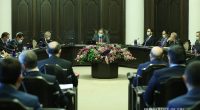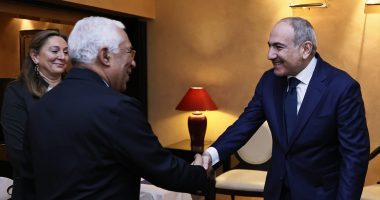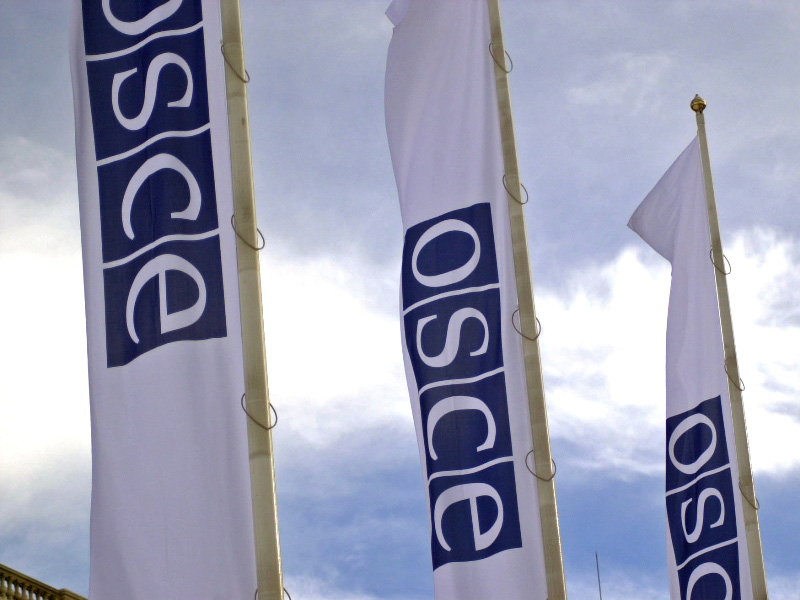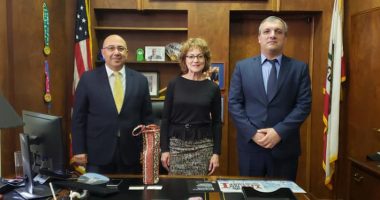MOSCOW, YEREVAN — Russian President Vladimir Putin and Armenian Prime Minister Nikol Pashinyan spoke by phone on Wednesday as their foreign ministers met in Moscow for fresh talks on the Nagorno-Karabakh conflict and Russian-Armenian relations.
A statement by the Kremlin said Putin and Pashinyan discussed “practical aspects of the implementation” of a Russian-brokered deal that stopped the war in Nagorno-Karabakh on November 10 as well as follow-up agreements that were reached by them and Azerbaijan’s President Ilham Aliyev in Moscow on January 11.
According to the official Armenian readout of the phone call, Putin and Pashinyan agreed on the need for a quick release of all remaining prisoners. “The Armenian side expressed concern at the fact that Azerbaijan is not fully complying with the relevant point of the joint [November] statement,” it said.
At least 100 Armenian soldiers and civilians are believed to remain in Azerbaijani captivity. Pashinyan met with some of their relatives when he visited Armenia’s second largest city of Gyumri earlier on Wednesday. The meeting took placed behind closed doors, and he made no public statements afterwards.
The Kremlin statement said Putin and Pashinyan also discussed “some topical issues of Russian-Armenian cooperation.” It gave no details.
The phone call coincided with Russian Foreign Minister Sergei Lavrov’s meeting with his visiting Armenian counterpart Ara Ayvazian.
Lavrov spoke with Azerbaijani Foreign Minister Jeyhun Bayramov by phone earlier in the day. According to the Russian Foreign Ministry, they focused on the implementation of the January 11 agreements mostly relating to the restoration of transport links between Armenia and Azerbaijan.
On Tuesday, Ayvazian and Bayramov spoke separately by video conference with Russian, U.S. and French diplomats co-chairing the OSCE Minsk Group.
“The Co-Chairs engaged with each minister in a lengthy and substantive exchange of views on issues related to the promotion of stability in the region, the modalities of the mediation process, and the role of the [Personal Representative of the OSCE Chairperson-in-Office,]” read a joint statement released by the mediators.










